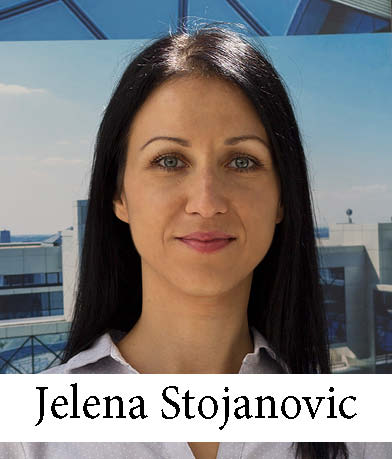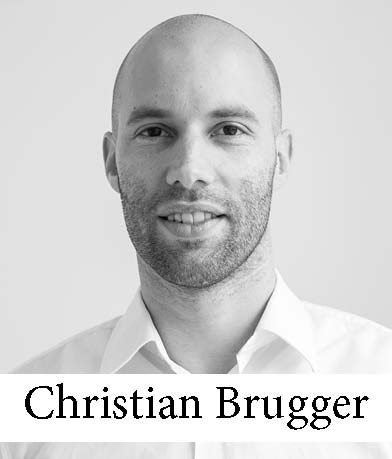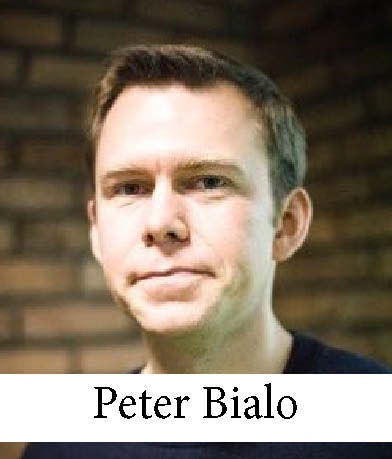Libor Licka holds the dual role of Regional Legal Counsel for ASE and Regional Compliance Officer for Europe East, Baltics & Scandinavia at Schindler, where he is currently responsible for the legal matters of the company in 13 jurisdictions. Slovak in origin, Licka has recently moved back to Bratislava from Schindler’s Vienna headquarters, where he had been based. He talked to CEE Legal Matters about the move and its implications for his role.
CEELM:
Let’s walk through your career so our readers can get to know you better.
L.L.: I belong to what is called the “Husak’s children generation,” which is the Slovak version of what is called the “baby boomer” generation in the US, but came 15 years later in our part of the world. Husak was the president of the former Czechoslovakia from 1975 until the very end of the communist system in 1989. Surprisingly, he was a lawyer, not a worker or farmer. The over-crowded schools in my youth therefore formed my thinking differently when compared to the less populous younger and older generations.
Allow me to explain. Shortages of everything somehow led me to prefer and value doing new and unheard of things instead of just following what everyone else is doing.
But coming back to your question, because my grandfather was an advocate – you know, a member of the “bourgeoisie” or “Intelligentsia”, as they were pejoratively called in those times – my father had no other choice than to become an engineer. So, obviously, after the fall of the former system, I opted to study law, what else?
I finished my five-year master studies in the first year of this millennium with an essay called European Dimensions of Software Piracy. It was during the peak of the Napster era and I remember building my first personal computer. Computers were really “in” in those times. I doubt nowadays anyone will attempt to build his own tablet.
Anyway, the newly-opened Faculty of Law of Matej Bell University was the only faculty in Slovakia specialized in European law. The docents and professors came from Bratislava and Kosice – in those times the only two other law faculties in Slovakia. So I can say that I studied in Bratislava and Kosice at the same time too. As Slovakia planned to join the EU, this specialization seemed to be a good idea, though everyone else – reasonably enough – wanted to become an advocate or public prosecutor as soon as possible. But later, when I started to work abroad, my broader knowledge of the EU legal system turned to be indeed useful.
CEELM:
Earlier, you mentioned having worked in three sectors. Can you elaborate?
L.L.: Yes, I have worked in all three sectors of economy. I consider this a unique experience. Nowadays it helps me a lot in understanding specifics of public and private tenders and many other issues in business and life.
First, just after university, I worked in the public sector in the legislative body for the Slovak government. It was the period when the Slovak laws were being approximated to acquis communautaire. In those times, there was a crazy work flow, with every day seeming to bring a new regulation. Slovak lawyers can probably tell stories about the huge space on office shelves required to accommodate all those books of the official gazette of laws from those times.
So after a while I was quite happy to perform what at the time was compulsory military service in the Law Office of the Ministry of Defense. And I balanced out that eye-opening military training by working for the third sector in The Slovak Red Cross in its Bratislava HQ legal team. There I got my hands on topics such as blood donations, cross-border export of disaster relief material, immigration, and many other very specific topics. This is knowledge they do not teach in a law faculty. But to be honest a huge part of the work was also dealing with the scams around real estate owned by the Slovak Red Cross and lobbying for resources.
Motivated by a wish to finally establish my own household, I then changed my career direction and in 2003 joined the local private equity firm Penta Investments, and shortly thereafter I went to work for seven years as an in-house legal counsel in Penta’s HQ in Cyprus. Penta, and especially their owners, are nowadays quite well known in Slovakia and the Czech Republic for being amongst the richest people in both countries. My Cyprus years led me to study a lot of new things, including the common law system, the many interesting issues around international tax planning, and some niche legal topics such as regulations of toxic waste disposal from aluminum processing, which was one of the legal problems related to an acquisition project I worked on. While attending the ACC conference in Vienna I did not hesitate to take an active part in a discussion about corruption in V4 countries, which must have been appreciated by my colleagues in the auditorium – as I got a job offer immediately afterwards.
As I needed and wanted to take better care of my young family, which turned out to be very difficult in distant Cyprus, I accepted an offer from the renowned Swiss company Schindler to work in their regional office as Regional Legal Counsel for CEE, located in Vienna. Schindler manufactures elevators, escalators, and other related products and employs over 56,000 people worldwide. Schindler devices move more than 1 billion people per day. As a result, working for the company was both a challenge and a responsibility. And as we lawyers know, a huge exposure to liability too. But compared to the very diverse portfolio in my previous position, I was quite relieved to be responsible for legal matters revolving only or almost only around just one business.
I am currently in charge of Schindler’s legal matters in 13 East European jurisdictions with a solid line to the Regional Manager and a dotted line to the Group General Counsel team in Switzerland. After a year in the office I was also asked to support compliance, and after four years I also added an auditing role to my responsibilities as Regional Compliance Officer for East Europe, Baltics, and Scandinavia.
CEELM:
What prompted your move back to Slovakia? Was it a hard internal sell?
L.L.: Let me first point out that it is not a move back in my eyes, though I understand that your question is just a figure of speech. Because once you reach a certain geographical coverage in your job, the world will become quite small. One day I might start in a conference call done from the Vienna airport, then fly to Warsaw for an internal meeting with our sales people, then have a business lunch with our customer’s lawyer, and in the evening return to Bratislava for dinner with my wife and kid – then spend the next day in the office preparing and then fly to Ljubljana for an audit. What I did was first move my household and then my office from Vienna to Bratislava.
My idea to move from Vienna to Bratislava after four years was surprising to our HR, as nobody had asked for that before, but once we ironed out our professional worries, updated ourselves on current requirements and, yes, also figured out a fair approach to remuneration, we moved on. Many people do not see it that way, but Bratislava is amongst the six richest regions in the EU in GDP according to Eurostat. What perhaps also helped was that another branch of our company moved a complete factory to Dunajska Streda, Slovakia, some time ago.
But what really prompted me to move was my family and the realization that, while I was always surrounded by professionals in my work, my wife and especially my child were unfortunately experiencing quite a different reality. In other words, being foreigners limited us much more than we were willing to accept, especially when just eighty kilometres away the most painful issues could be naturally solved. And as my son is going to school soon, it was a good moment to move forward.
CEELM:
You mentioned “professional worries” related to your move. What were they, and how did you move past them?
L.L.: From an HR perspective I would be more distant from my HQ. Legal and HR also have a lot of overlap and the worry was that I would be a bit less accessible to both HQ in general and HR in particular. Being more distant, from my side, there was also a concern that I would be left out, so to speak. My position was very specific – from the beginning I was placed in the core in Vienna. Everybody was used to being able to approach me directly in Vienna. The thing that had to be clarified was that we’d be as effective in our communication as with the other members of the team … that are not physically present in Vienna. Ironically, even though HR was sitting across from my office, we still send e-mails and call each other on plenty of occasions for quick matters for which even standing up from my desk was not worthwhile. So from my perspective nothing was really changing, and I was happy to have a constructive talk with my HR to ensure they felt the same way. My direct supervisor is not based in Vienna so nothing really changed in that dynamic, hence it was a very easy “sell.” In terms of feeling left out, I guess it’s more a matter of adapting a bit and taking the time to keep in touch, get on distribution lists of calls with management, and so on.
CEELM:
So are you currently commuting to work between Vienna and Bratislava?
L.L.: Yes, but a daily two-hour commute between Vienna and Bratislava does not make much sense with my job description. Therefore, I discussed my options with my employer and so far it worked to our mutual benefit. I will open my office in Bratislava next month. This also fits with the good advice I received some years ago in Cyprus from a seasoned lawyer, who said, “Life only works in this order: health, family, work,” and closed meetings, sometime earlier, never later. That way there is no conflict in between those values.
CEELM:
We touched upon the idea of “community” when we first spoke. How is that linked to your move?
L.L.: I think the community and the culture and language you share with people directly around you started to gain in importance when we had our child. Before that we spoke with our friends in Cyprus and Austria in English and listened to music and watched movies and talk-shows and read books all in English with a few exceptions. We considered ourselves to be international business people. It was a convenient bubble. But it burst when the third member of the family arrived. Then everything became much closer and more personal, because, as a family, you should not only hover above the local community, you must and want to integrate. And that is when the particular culture and language really gets to you. Forget English. Forget your ideas. You realize that you have no – or minimal – influence.
We used to have a picture in the house saying “Home is where your heart is.” Well it is not true. Home is geographically given and culturally defined by people around you, like it or not. Over the past 12 years we lived in two countries which we called home, but for the community around us we were always foreigners. And from that came certain socio-economic consequences and status. It might not be important personally for me, but those things are very important for the future of my child. Somehow, I started to think more long-term and noticed things I did not care about before. So as you see uniting the place of my home office with the place of my household was a move forward for all of us.
CEELM:
Is your team moving with you, or will it continue to be based in Austria?
L.L.: It is already an international team located around East Europe. In alphabetical order there are three Austrians who are based in Vienna, then Polish, Romanian, and Swiss lawyers who are each based in their respective countries, and then one Ukrainian who is also in Vienna. From now on there will also be one Slovak based in Slovakia. We all regularly meet personally for core team meetings and keep in touch via standard communication tools.
CEELM:
The new role will entail, more than ever, working with a virtual team. How are you bracing yourself for that challenge?
L.L.: Let’s first clarify the position itself. I have a 50/50 split between legal matters and compliance matters. Legal involves mostly bigger contract negotiations, group legal project implementation, my own legal projects, and consulting on various topics. I oversee 13 companies in 13 jurisdictions plus some countries where we have a distributor. So obviously I keep multiple contacts to local law offices duly updated. I also noticed this new trend for regionalization of law firms, which has been described in CEELM, but so far I have not used one regional firm for multiple jurisdictions. I either go for the local firm or for a big international firm, depending on the matter I need to discuss.
For compliance it is mostly audits and implementation of group compliance projects and my own projects. Here it is less consulting and more controlling. On the other hand, it is concentrated mostly only around anti-bribery and anti-cartel issues.
In regards to best practices, I would recommend standard measures like updating a to-do list for the next day in the evening before, which somehow keeps my mind relaxed for the time when my family needs me. One more observation would be not to forget to nurture your hobbies which will give you, in the words of Carl Honore, “a texture, shape, and meaning to your life.” Also have a social life and, as frequent as possible, contacts with your friends and people you know. It all is, in my opinion, extremely beneficial for both your work and personal life.
CEELM:
You are also responsible for compliance across the region. How does one set up a thorough compliance system without specific knowledge of local legislation?
L.L.: Let me give you a specific example of one of my compliance projects. We call it an “Ethics Line” and it is, in essence, a whistle-blowing hot line. Whistle blowing is in my opinion an extremely important part of a compliance program in any company and in society in general, as wrongdoings must not be simply tolerated if we want progress in our companies and society. Or at least some balance. In line with that saying, “all it takes for evil to triumph is for good people to do nothing.” But, as you can imagine, thanks to the abuses by the omnipresent communist state in the past, pure whistle-blowing hot lines are not so well perceived in our region.
People understandably do not like to share their knowledge about other people’s wrongdoings in good faith. They are either skeptical that it will not change anything or simply scared that it will backfire against them.
So what we did is to have an external local legal office subcontracted to provide us with their email address which is then distributed in the company as an email where our employees can send both their negative and positive observations. This external lawyer then receives an email in his national language and what he is asked to do is transcribe the information together with an initial legal analysis according to local laws into a form I provided in English. If the sender would like to remain anonymous, the lawyer keeps his identity and contact information hidden. If we need to communicate with the whistle-blower, we do it via the local lawyer.
In the company we also have an at-any-point accessible internal norm describing these rules in detail. On average we have six whistle-blowings in our region a year. Half are usually positive.
CEELM:
On the lighter side, what is the first thing you will do once back in Bratislava?
L.L.: Well I am already starting and ending my day in Bratislava and there were many first things we did and still want to do. But among the first were a visit to Danubiana Gallery of Modern Art and establishing an aquarium with discus fish in our new home. And the first thing I will do today after work is pick my son up from the dance school he started to attend and chat with him on our way home about his day.
Thank you for this opportunity, and keep up your good work on CEELM!
This Article was originally published in Issue 3.1. of the CEE Legal Matters Magazine. If you would like to receive a hard copy of the magazine, you can subscribe here.





